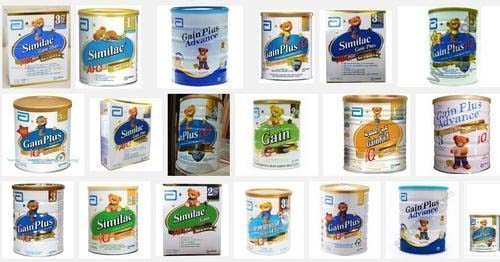
Over the past few days, Qatar has been removing certain brands of baby formula from supermarket shelves following the discovery of botulism-causing bacteria in whey products produced by New Zealand dairy giant Fonterra.
The move appears to be precautionary, as Qatar is not on the official list of countries that have imported the contaminated product.
By order of the government, Anchor Milks 1 Plus and 3 Plus (designed for children 1 to 3 years old and 3+ respectively), have been taken off the shelves in supermarkets across Qatar. Similac Gain Plus IQ 1-3, which is designed for children aged 1 to 3 years old, has also been removed, though it is produced by a different manufacturer and has not had any safety alerts.
Management at LuLu, Geant and Al Meera supermarkets all confirmed that the products listed above are temporarily no longer for sale. Carrefour could not be reached for comment.
The country’s Joint Food Monitoring Committee is also monitoring border crossings and markets, and testing samples of the confiscated formula milk to check for contamination, the Qatar Tribune reports.
Caution
Qatar’s decision to recall the products follows a similar move yesterday by the Saudi Food and Drug Authority. KSA is one of six countries that are known to have imported the contaminated whey protein concentrate, or products that contain it.
The other countries identified by Fonterra are Australia, China, Malaysia, Thailand and Vietnam.
It is unclear why Similac has also been pulled from the shelves. A spokesperson for Abbott Laboratories, which manufactures Similac Gain Plus IQ 1-3, told Doha News that the product on sale in Qatar is safe.
“Our Similac Gain Plus products in Qatar aren’t affected. Firstly, they’re not manufactured in New Zealand – they’re made in Ireland – and they’re also not made by Fonterra.
Consumers can be reassured that the products are safe.”
Fonterra, which manufactures Anchor 1 & 3, did not respond to calls for comment. But the company’s Middle East branch has previously stated that Anchor Formula milk sold in the region is not contaminated.
Meanwhile, China has halted all imports of Fonterra milk powder, and Russia has also put a temporary ban in place.
Source
Three batches of whey protein concentrate manufactured by Fonterra in May 2012 only recently tested positive for Clostridium botulinum, after an initial test this March suggested something was amiss.
Fonterra has confirmed that the suspect batches were used to form 870 tons of products sold in a variety of markets around the world.
Fonterra Chief Executive Theo Spierings has apologized for the concern the health scare may have caused parents. In a statement, he’s also said that most of the tainted product has been located and recalled:
“I appreciate the way our customers and their local regulators have worked so quickly with us.
Their fast actions and commitment to safety have meant that almost all products are now secured – and we are in the final stages.”
Furthermore, Spierings states that when exposed to oxygen, Clostridium botulinum does not survive – meaning that the chance of any infection from the milk is “minute.”
Advice
Despite these reassurances, Qatar’s Joint Food Monitoring Committee has urged parents not to use any Similac Gain Plus or Anchor 1 Plus and 3 Plus “until competent authorities make sure they are not of any risk.”
So far, there have been no cases of botulism reported as a result of children drinking the contaminated milk.
Symptoms of botulism include vomiting and diarrhea, followed by possible paralysis. It can be fatal if not treated.
Thoughts?
Note: Edited on 9th August to correct the name of the Similac milk from Similac Gain Plus to Similac Gain Plus IQ 1-3.







